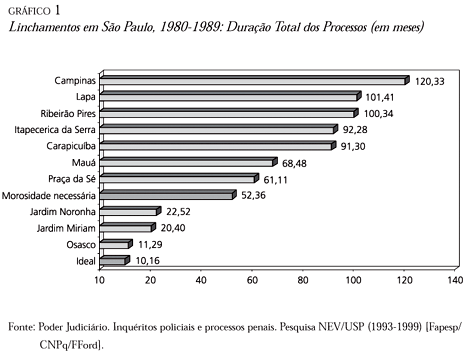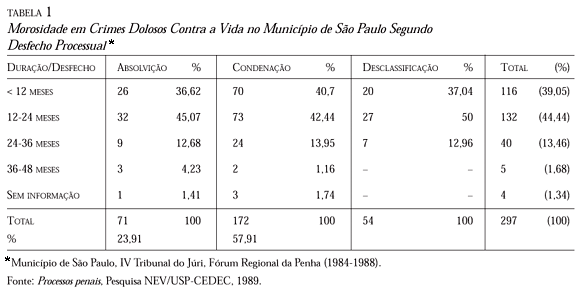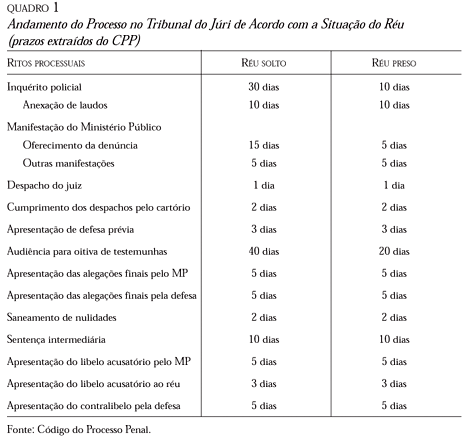This article examines delays in the penal justice system. Time is the measure of justice. The longer a case takes, the less chance there is to correct technical failures in the administrative procedures or locate witnesses, other victims or possible aggressors. If too short, there is a risk of contravening rights enshrined in the Brazilian Constitution and penal laws, thereby producing injustice rather than justice. For common citizens, time is the place of collective memory. When they can make links between the crime committed and the application of penal sanctions, they feel that justice has been applied, conferring credibility to the institutions responsible for retributive justice. This article explores these claims through an empirical study of the penal investigations conducted to establish criminal responsibility for lynchings perpetrated in the state of São Paulo from 1980 to 1989.
Human Rights; Violence; Lynchings; Criminal Law




